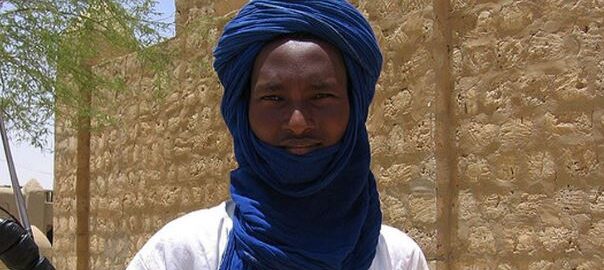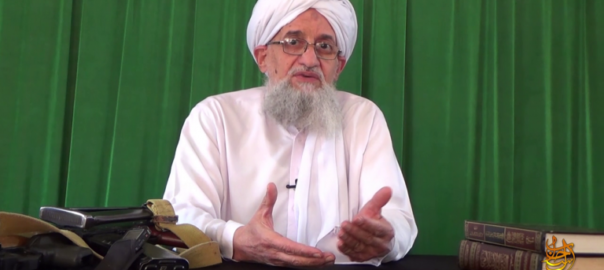In questi giorni si parla molto del sostegno dell’Ucraina e della Francia ai gruppi jihadisti in Mali e dintorni. Diversi quotidiani italiani hanno rilanciato queste narrative.
Continue readingTag Archives: Al-Qaeda
Debunking Al Qaeda new Inspire productions – by F. Borgonovo, G. Porrino, S. Lucini, A. Bolpagni
In late December 2023, pro-AQ users shared two videos on various social platforms (X, Telegram, and RocketChat) that seemed to breathe new life into Inspire’s infamous magazine series.
Continue readingSaif al-‘Adl nuovo leader di Al-Qaeda: prime considerazioni – by Sara Brzuszkiewicz
Risale a due giorni fa la conferma da parte del Dipartimento di Stato statunitense di quanto asserito poco prima dalle Nazioni Unite: Saif al-‘Adl, situato in Iran, è l’attuale leader di Al-Qaeda. Il report dell’Onu spiega che l’idea dominante proveniente dalle intelligence dei Paesi membri è proprio che sia al-‘Adl, egiziano di 62 anni, il successore di Ayman al-Zawahiri. Continue reading
L’eliminazione di al-Zawahiri e il futuro di al-Qaeda
Nella notte tra il 30 e il 31 luglio, un attacco con drone condotto dagli Stati Uniti in un quartiere residenziale di Kabul ha portato all’uccisione di Ayman al-Zawahiri, attuale leader di al-Qaeda e storico vice di Osama Bin Laden. Continue reading
Zawahiri, 9/11 e lo spartiacque di al-Qaeda – by Daniele Plebani
L’11 settembre 2021 la casa mediatica qaedista al-Sahab ha diffuso un videomessaggio di Ayman al Zawahiri dal titolo “Jerusalem will not be judaized – part 1: arab zionist from Faysal to Bin Zaid”. Continue reading
Hamza bin Laden: un’altra morte da verificare – by Franco Iacch
In un nuovo trattato di 400 pagine rilasciato il 12 settembre scorso da al Qaeda nella Penisola Arabica, Ibrahim Ahmed Mahmoud al-Qosi associa al nome di Hamza bin Laden una locuzione standard utilizzata dalle organizzazioni terroristiche per indicare una persona non più in vita. Il comando centrale di al Qaeda non ha mai rilasciato alcuna dichiarazione sulla presunta morte del figlio di Osama bin Laden. Continue reading
Hattin Shura, l’organismo strategico di al Qaeda – by Franco Iacch
Nel dodicesimo rapporto dell’Analytical Support and Sanctions Monitoring Team trasmesso al Security Council Committee delle Nazioni Unite, si rileva che “i Talebani ed al Qaeda rimangono strettamente allineati in un rapporto divenuto sempre più saldo attraverso legami di seconda generazione”. Continue reading
US multiagency operation dismantled part of al-Qaeda’s cryptocurrency network. What we learned so far and what to expect – by Daniele M. Barone
On August 13, the US Department of Justice announced that the US government, through a multiagency effort, seized about $2 million in Bitcoin from accounts connected to Al Qaeda, Daesh, and the al-Qassam Brigades (i.e. Hamas’s paramilitary arm) and disrupted their terrorism financing cryptocurrency networks. Continue reading
September 11 attacks: European aspects – by Maria Chr. Alvanou
September 11 will surely be remembered as one of the most tragic events in the history of the United States. A surprise attack on American soil that caused death, destruction and injuries to the specific target locations, as well as trauma and shock to a whole population. Continue reading
Base USAF: auto bomba esplode all’ingresso. Chi bussa? – by Daniele Plebani
Un’automobile, il giorno 21 marzo 2018 alle ore 19:00, carica di bombole di gas propano si è lanciata contro l’ingresso principale della Travis Air Force Base in Fairfield, in Northern Carolina. Il guidatore, morto nell’attacco, ha deliberatamente innescato l’esplosione. La base USAF ospita circa 10.000 persone e la sua operatività è di supporto alle operazioni nel pacifico con cargo e trasporti. L’FBI sta trattando l’episodio come un caso di terrorismo, a causa della volontarietà dell’atto suicida. Continue reading
Back in the days: perché l’attack-stream che sta colpendo l’Europa dal 2015 non ci dovrebbe sorprendere – by Emilio Palmieri
L’attacco di sabato sera 3 giugno 2017 e’ l’ultimo di una serie di eventi che, in maniera significativa dal 2015, hanno insanguinato il Vecchio Continente ad opera di individui (piu’ o meno collegati a network strutturati) che si sono ispirati al salafismo jihadista militante, contro target di opportunita’ e per mezzo di un “armamento” di tipo principalmente low-tech. Continue reading
Bin Landen richiama agli attacchi suicidi – by Marco Maiolino
Il 13 maggio scorso l’apparato mediatico qaedista As Sahab ha rilasciato online un video – in lingua araba, sottotitolato in inglese e della durata di poco più di 10 minuti – contenente un audio-messaggio di Hamza Bin Laden (28 anni), figlio del fondatore di Al Qaeda Osama Bin Laden, dal titolo “Advices from Martyrdom-Seekers in the West”. Continue reading








